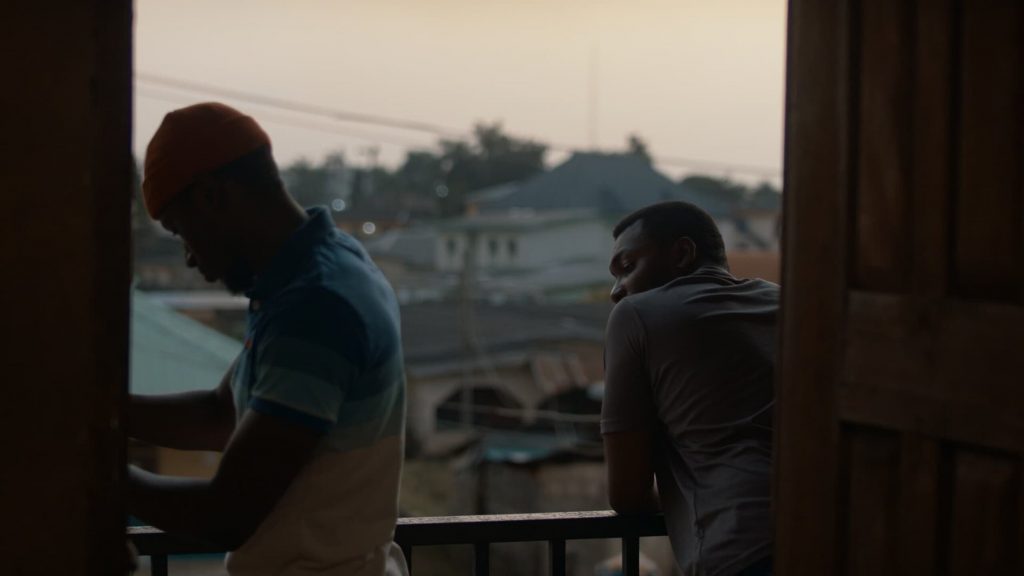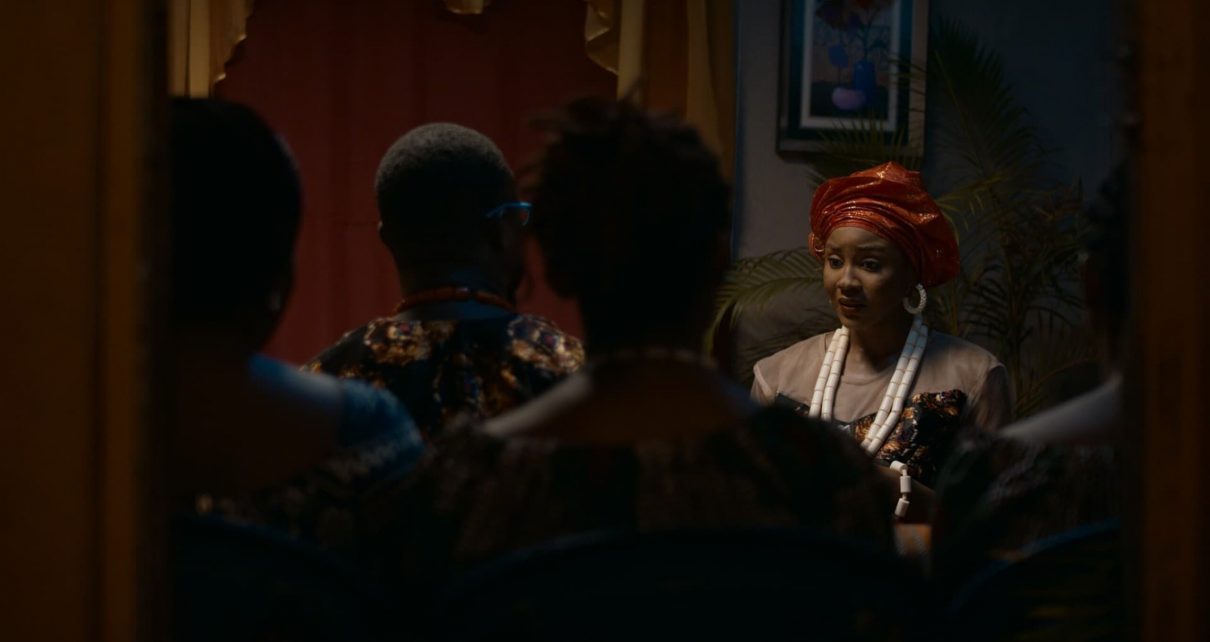“All the Colours of the World Are Between Black and White” is a courageous film that fearlessly confronts Nigeria’s rigid and harsh stance against homosexuality. Set in the bustling metropolis of present-day Lagos, the movie boldly addresses the reality that being part of the LGBTQIA+ community in Nigeria means living in constant fear and hiding one’s true identity.

Director Babatunde Apalowo skilfully navigates the sensitive subject matter, shedding light on the challenges and struggles faced by individuals who dare to express their authentic selves. Homosexuality is still illegal in Nigeria, and those caught engaging in same-sex relationships face severe legal consequences and social ostracization. In this deeply conservative society, the LGBTQIA+ community is forced to live in the shadows, with the fear of persecution lurking around every corner.
Through the lens of Bambino, the film provides a poignant and heartbreaking portrayal of a young man wrestling with his own queerness. His journey represents the many others who grapple with their identity under the oppressive weight of societal norms and cultural expectations. Tope Tedela’s powerful and understated performance brings to life the internal struggle and silent pain experienced by countless individuals in Nigeria’s LGBTQIA+ community.
Apalowo’s direction deftly showcases the stark contrast between tradition and modernity in Nigeria. The film subtly examines the ancient cultural standards and religious beliefs that seem to perpetuate discrimination against the LGBTQIA+ community. Rather than explicitly focusing on these oppressive elements, the film hones in on the personal journeys of its characters, underscoring the internal conflicts and emotional turmoil they face in their quest for self-acceptance.
One of the film’s most significant achievements is its ability to portray the universal nature of human desire and the fundamental need for acceptance and belonging. Despite the specific cultural and legal context, the emotions and experiences depicted resonate with audiences worldwide, sparking empathy and understanding.
“All the Colours of the World Are Between Black and White” targets Nigeria’s supposedly repressive policies and societal prejudices against the queer community. The movie triggers a conversation on why LGBTQIA+ rights should be recognised in the country. It attempts to portray a moving and compassionate picture of the struggles faced by these individuals, the film challenges viewers to reflect on their own beliefs and prejudices.
Despite the potential for stiff opposition and the possibility of limited screening in Nigerian cinemas, “All the Colours of the World Are Between Black and White” shines through with its compelling storytelling and remarkable performances, shedding light on the human toll of discrimination and urging society to embrace acceptance and compassion. It issues a passionate call to action, advocating for greater understanding, tolerance, and equal rights for individuals of all sexual orientations. As Nigeria wrestles with deeply entrenched cultural prejudices, the film’s universal acceptance around the world serves as a powerful reminder that the fight for LGBTQIA+ rights as a global struggle for human dignity and inclusivity is fast gaining traction, nonetheless.


